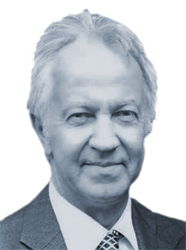 Michel Platini has not yet taken any decision on whether he will stand for the FIFA presidency when his current UEFA mandate expires in 2015 – months before Sepp Blatter has said he intends to stop the world and get off.
Michel Platini has not yet taken any decision on whether he will stand for the FIFA presidency when his current UEFA mandate expires in 2015 – months before Sepp Blatter has said he intends to stop the world and get off.
The 56-year-old Frenchman has come a long way both in terms of career and concepts since he first dipped his toes into international football politics in the mid-1990s as co-president of the French organising committee of the 1998 World Cup.
Platini remains, at heart, a football player and he is far happier talking about the state of the game on the pitch than off it, as demonstrated by a long and wide-ranging interview with L’Equipe Magazine to mark the start of an important year for European football.
The 1984 European champion captain of Les Bleus used to talk of turning back the clock and transforming the Champions League back into a knockout competition; then, when he stood first for the UEFA presidency in 2007, he understood the pragmatic, financial value of the mini-league system.
However he also saw a need to bring Europe’s silent, middle-ranking majority closer to the heart of UEFA. Platini has been as good as his word. He widened access successfully to the Champions League – as evidenced by APOEL’s presence in the second round – and stood resolutely by the gamble to take Euro 2012 to Poland and Ukraine.
Those were decisions which combined the needs of football with the commercial demands of the sports/market economy which underpins the wealth of both FIFA and UEFA.
Platini has learned the importance of diplomacy and tolerance and a man who never feels the need to pull any punches about football itself or the managament of the club game is far more careful about his words when they might strike a chord about the international game or national associations . . . on whom any eventual FIFA campaign would depend for votes.
Asked about FIFA, Platini pointed out that both he and Blatter have three more years in their present roles. He says: “I have just been re-elected at UEFA until 2015 and Blatter has been elected at FIFA for the same. We can talk more calmly about these things at the end of my mandate. For now, I have not taken this decision.”
Platini sidestepped a questioning invitation to comment on some of Blatter’s more outlandish comments while cautioning that, in a “dangerous” political and financial wider world, “we need people who protect football.”
Good relations with the European Union were important for UEFA (“I am a good little citizen: I am not above the law”) but less important for FIFA (“They represent only 27 countries out of 208”).
Similarly, Platini was guarded on the issue of corruption in high places, though he did offer one pointed hint.
“Here (at UEFA), there’s none of it [corruption]. And there are people from here in FIFA and people who are not. There is a difference in terms of morality among people who come from different worlds: something which is forbidden here may, perhaps, be acceptable in other countries.
“You must be very careful in talking about corruption. For us, what we might call corruption, others might call normal behaviour. However, if any members of the executive committee have abused their roles within FIFA then, if they are caught, they should move on very quickly.”
By Keir Radnedge






